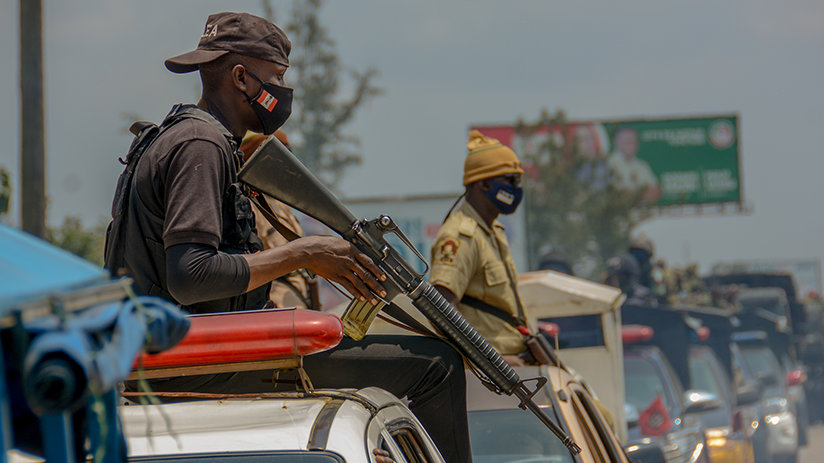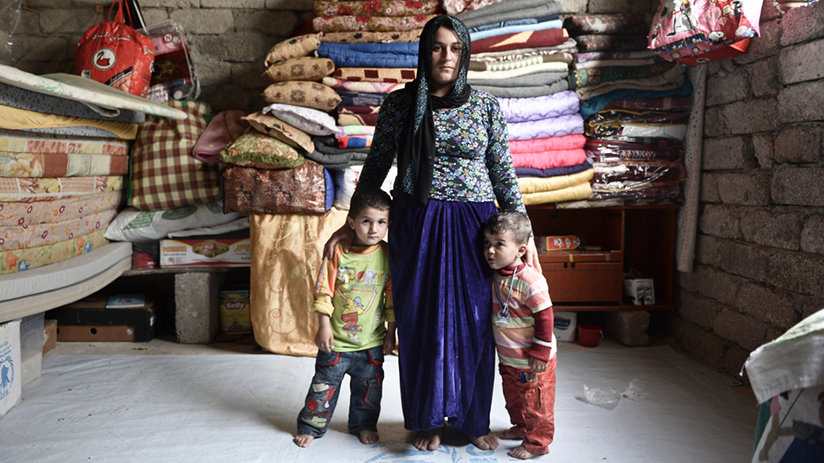U.S. Commission on International Religious Freedom Annual Report Paints Grim Picture, Inspires Yet Greater Resolve
Twenty-three years ago, the United States Commission on International Religious Freedom (USCIRF) was created by a bipartisan act of Congress. USCIRF’s prime duties are to seek out and detail any violations of religious freedom internationally and to make policy recommendations to the President, Congress, and the Secretary of State. Each year at this time, USCIRF releases its annual report on the state of religious freedom around the globe.
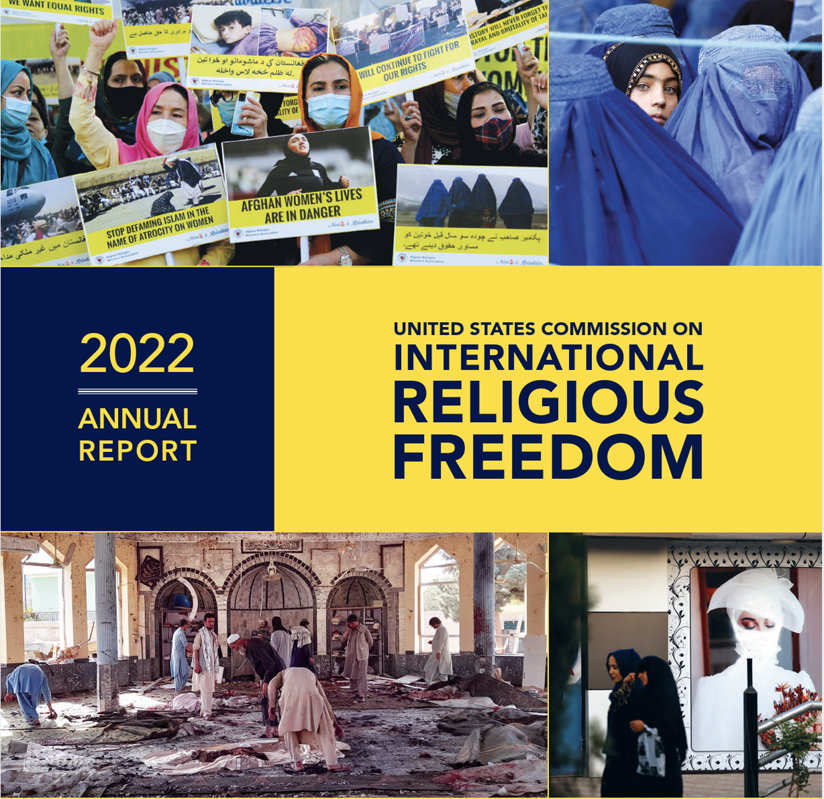
This year’s report, released on April 25, is an exhaustive 100-page document bearing witness to crimes committed against people for what they believe, naming the perpetrators as well as individuals targeted by those crimes, and offering recommendations to the U.S. government for sanctions to take against the guilty parties.
Consisting of lists, pie charts, and percentages, each cataloging bigotry, rape, kidnapping, forced conversion, false imprisonment and genocide, among other atrocities, the report is as chilling in its precision as it is in its revelation of the depths to which one group can plunge in its inhumanity towards those who look or think differently.
“Clearly your advocacy has had an impact and is even striking a nerve. Together we will preserve the promise of religious freedom for all.”
USCIRF commissioners presented the report in a live webinar on Monday, introduced by two members of Congress, Speaker of the House Nancy Pelosi and Florida Senator Marco Rubio.
Ms. Pelosi reflected on the global threat that worshipers face from autocracy, bigotry, and political upheaval: “The ability to worship safely and freely is a cornerstone of American democracy and is a fundamental human right that transcends borders. When that freedom comes under threat, America has a responsibility to speak out.” She added that, over the years, seven USCIRF commissioners have been sanctioned by the government of China. “Clearly your advocacy has had an impact and is even striking a nerve. Together we will preserve the promise of religious freedom for all.”
Senator Rubio observed: “Last year people around the world continued to be harassed, tortured, and even killed for who they are or what they believe in.” He noted that both the current and former Secretaries of State have deemed Beijing’s ongoing atrocities genocide, as well as how the takeover in Afghanistan by the Taliban has forced the Sikhs, Hazara Muslims, Hindus, and Christians of that country into hiding. In Nigeria, terrorists targeted Christians, “a problem the Nigerian government still fails to address.” “The fight for religious freedom will not be over anytime soon,” Senator Rubio concluded, “but this report is a valuable tool in the war against unjust persecution.”
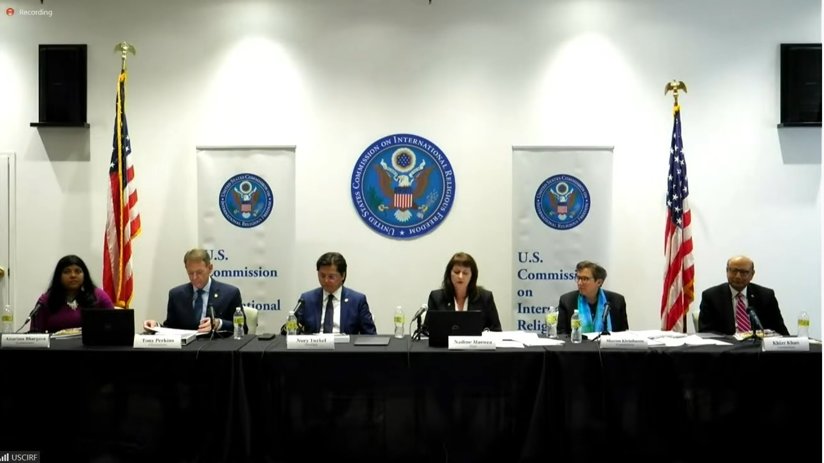
Following these introductions, the Commission—a nonpartisan mosaic of faiths and backgrounds—submitted its summary. The Commissioners present were Nadine Maenza, USCIRF Chair, President of Patriot Voices and Board Member of the Institute for Global Engagement, Sinjar Academy, and Freedom Research Foundation; Nury Turkel, USCIRF Vice-Chair, lawyer, author, and human rights advocate who is also Senior Fellow at the Hudson Institute and a member of the Council on Foreign Relations; Tony Perkins, Commissioner and President of the Family Research Council, a religious public policy organization; Anurima Bhargava, Commissioner, former Justice Department official and President of Anthem of Us, founded to promote dignity and justice in workplaces, schools, and communities; Rabbi Sharon Kleinbaum, Commissioner, spiritual leader of Congregation Beit Simchat Torah in New York City and Commissioner on New York City’s Commission on Human Rights; and Khizr Khan, Commissioner, author, attorney, religious freedom advocate and founder of the Constitution Literacy and National Unity Center.
Chair Nadine Maenza opened the briefing with an overview of USCIRF. “We at USCIRF are dedicated to advocating for international religious freedom, a foundational essential to human rights,” she said. “Today we are proud to release our 23rd annual report which offers an overview of religious freedom issues around the world and lays out recommendations to the U.S. government on what it can do to shed light, assure accountability, and encourage positive change.” Ms. Maenza set forth USCIRF’s two focuses: nations that should be on the Special Watch List, and those which should be listed as Countries of Particular Concern (CPC).
The USCIRF report presents a grim but unblinking view of the state of religious freedom in our time.
A Special Watch List country is one that literally needs to be watched because it has condoned and engaged in severe religious freedom violations. Countries USCIRF recommended be placed on or remain on the Special Watch List in 2022 include Egypt, Cuba, Indonesia, Algeria, Central African Republic, Iraq, Nicaragua, and Turkey.
A Country of Particular Concern (CPC) is a nation guilty of particularly severe violations of religious freedom. Countries USCIRF recommend be placed on or remain on the CPC in 2022 include Afghanistan, China, India, Russia, Nigeria, Iran, North Korea, Syria, and Saudi Arabia.
Ms. Maenza offered a quick review. Central African Republic has engaged in the abductions and killings of Muslims: designated Special Watch List.
Afghanistan—long a country of concern—has borne a disastrous record of violations of religious freedom since the return of the Taliban to power: designated CPC.
“The Jewish community has a long and proud history in Egypt and most of them have had to flee in order to practice their religion.”
Nigeria, once marked as a CPC, then for a time appeared to improve with no religious freedom violations, prompting the State Department to remove that designation. Within the past year, however, Nigeria has become a “hotbed of persecution.” Recommended designation: CPC.
“These are just a sampling of the places where there are challenges to religious freedom,” said Ms. Maenza.
Vice-chair Nury Turkel commented on the Biden administration’s cooperation to boost religious freedom assistance internationally. USCIRF was pleased that the Administration acted on its recommendations to appoint Rashad Hussain as United States Ambassador-at-Large for International Religious Freedom and to appoint Deborah Lipstadt as the State Department’s special envoy to monitor and combat antisemitism.
Commenting on China, Mr. Turkel observed, “China has been designated a CPC since 1999... They attack Western religions specifically, Islam and Christianity. The Chinese communist party (CCP) views them as dangerous to their existence. The number one recommendation we would make is that CCP is a threat to religious freedom in China. Religious Freedom is a nonpartisan issue, a national security issue,” Mr. Turkel added, “so it shouldn’t be a concern for anyone concerned with our foreign policy.”
He also noted that this year, for the first time, Russia was designated a CPC for egregious human rights and religious rights violations.
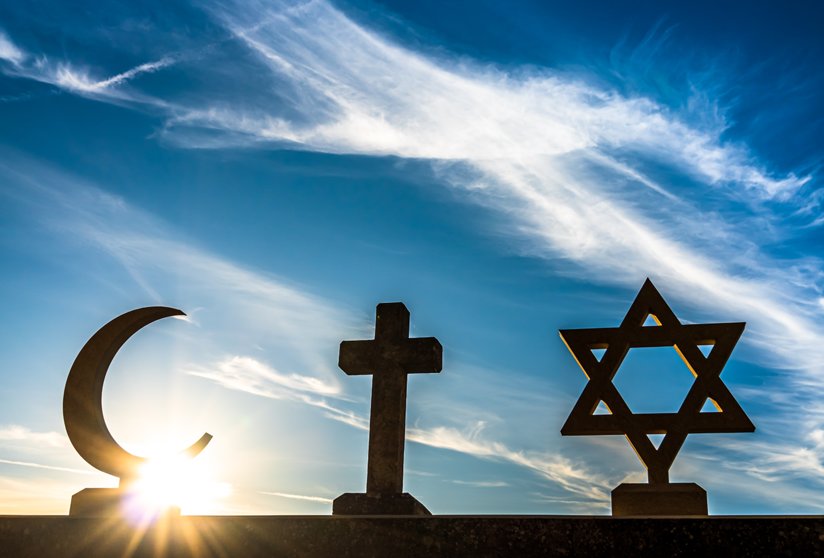
Commissioner Khizr Khan indicated, “Violations of human rights, violations of religious rights have been present in Russia for quite some time. Russia invaded Ukraine, and the USCIRF is concerned that it will extend its religious freedom abuses to future occupied areas. They have deliberately shelled houses of worship that were sheltering people. We strongly condemn these violations of human rights and religious rights. We hope these atrocities will cease soon.”
Ms. Bhargava, for her part, detailed events in India. She pointed out that, for the third year in a row, USCIRF has recommended India be designated a CPC. “They are pushing out non-Hindu minorities. Organizations supporting religious organizations are being defunded, and we are very much concerned about how the laws on citizenship are used to try to suggest that certain communities do not belong there.” Religious minorities such as Sikhs, Muslims, and Christians are the focus of government attacks through the legal system among other channels. Many are being denied citizenship and are forbidden from converting to another religion, impacting their everyday lives.
Commissioner Kleinbaum commented on Egypt’s Special Watch List designation. “We understand the power of faith in standing against the Pharaohs of faith,” Rabbi Kleinbaum said, citing Egypt’s “continued enforcement of blasphemy laws, and using terrorism laws against those who speak out for religious freedom.”
“Antisemitism is the canary in the coal mine.”
“The Jewish community has a long and proud history in Egypt,” she added, “and most of them have had to flee in order to practice their religion.”
Commissioner Perkins, while acknowledging the efforts made by Egypt’s president to broaden religious freedom, stated that he is stifled in his efforts by the laws on the books. “What plagues Egypt is their own policies,” Mr. Perkins said. “The existing policies divide that country. The religious category on the National ID cards is still a point of concern. We need to see some significant and concrete steps.”
When it comes to Europe, Commissioner Khan noted an upsurge in Islamophobia and antisemitism. Mr. Perkins added, “Antisemitism is the canary in the coal mine that is the harbinger of more religious freedom violations coming up.”
The USCIRF report presents a grim but unblinking view of the state of religious freedom in our time. On examination, the facts presented make it difficult to have anything other than a glass-half-empty view of the future. Nevertheless, one must consider that without a commission to gather the facts, interview the witnesses, name the victims, condemn the perpetrators and recommend consequences and accountability, there would be no hope at all for those weighed down by the twin burdens of intolerance and abuse.
Or as Chairperson Maenza said, “The scope and scale of the violations are disheartening, but it makes us all the more determined.”







